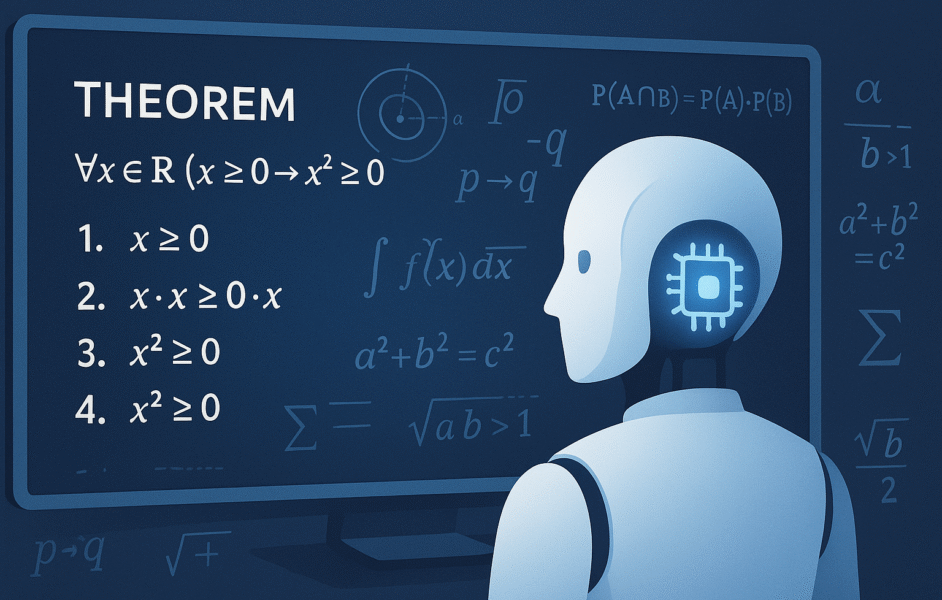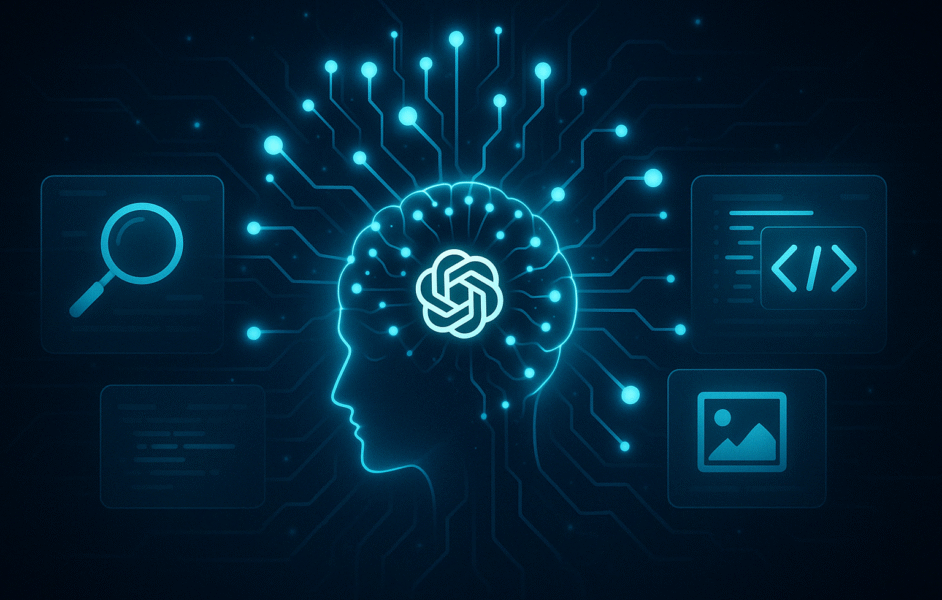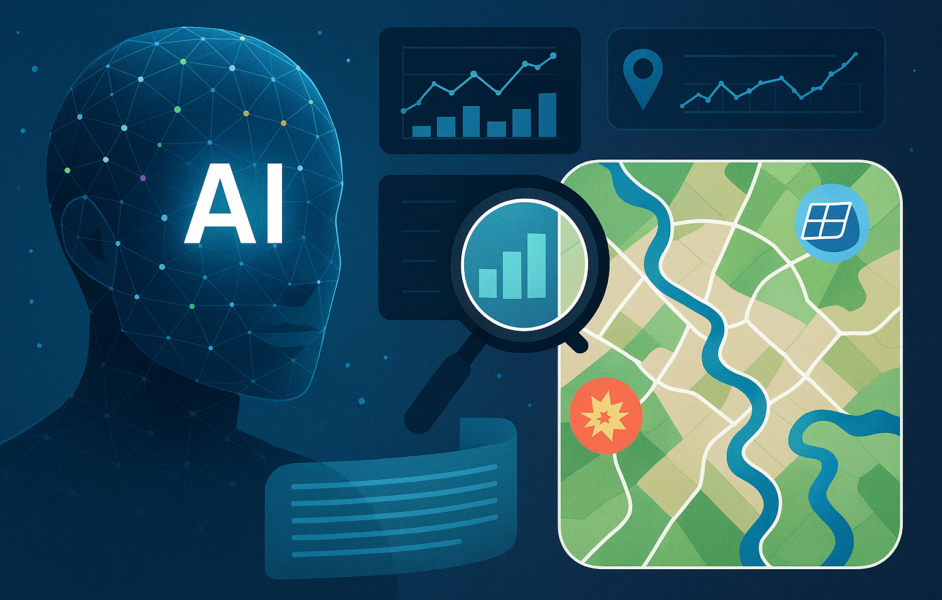Revolutionizing AI Reasoning: Microsoft’s Phi-4-Reasoning Model Breaks New Ground
Microsoft’s recent release of Phi-4-Reasoning challenges a long-held assumption in the development of artificial intelligence systems focused on reasoning. Previously, researchers believed that sophisticated reasoning capabilities necessitated massive language models with hundreds of billions of parameters. However, the new 14-billion parameter Phi-4-Reasoning model defies this notion, proving that a data-centric approach can rival larger systems in performance. This breakthrough indicates that training methodologies can shift from “bigger is better” to “better data is better,” enabling smaller AI models to demonstrate advanced reasoning.
The Conventional View on AI Reasoning
Chain-of-thought reasoning has established itself as a foundational technique for tackling complex issues in artificial intelligence. This method guides language models through a stepwise reasoning process, breaking down intricate problems into digestible parts. It emulates human cognition by facilitating a “think out loud” approach before arriving at answers.
Nevertheless, this technique has its constraints. Research consistently shows that chain-of-thought prompting is effective only with very large language models. The quality of reasoning was linked to model size, resulting in increased competition among companies to develop massive reasoning models.
Insights into AI reasoning stem from the observation of large language models engaging in in-context learning. Models that receive examples of step-by-step problem-solving often adopt these patterns for new challenges, leading to the prevailing mindset that larger models are inherently better at complex reasoning tasks. Substantial resources have thus been allocated to enhance reasoning capabilities through reinforcement learning, on the assumption that computational power is the key to superior reasoning.
Embracing a Data-Centric Approach
The emergence of data-centric AI stands in stark contrast to the “bigger is better” mindset. This approach shifts the spotlight from model architecture to meticulously engineered training data. Rather than considering data as static input, the data-centric philosophy treats it as a resource that can be refined and optimized to enhance AI performance.
Thought leader Andrew Ng advocates for systematic engineering practices aimed at improving data quality over merely tweaking code or enlarging models. This philosophy underscores that data quality and curation often outweigh model size. Businesses embracing this methodology have demonstrated that smaller, meticulously trained models can outperform larger competitors when trained on high-quality datasets.
This data-centric perspective redefines the critical question to: “How can we enhance our data?” rather than “How can we expand the model?” It prioritizes the creation of superior training datasets, enriched data quality, and the development of systematic data engineering practices. In this paradigm, the emphasis lies on understanding what makes data valuable for specific tasks, rather than merely amassing larger volumes.
This innovative approach has shown remarkable effectiveness in training compact yet powerful AI models using smaller datasets and significantly less computational resources. Microsoft’s Phi models exemplify this data-centric strategy, employing curriculum learning inspired by children’s progressive learning. Initially, models tackle easier examples that are gradually substituted with more complex challenges. Microsoft’s dataset, derived from textbooks and detailed in their study, “Textbooks Are All You Need,” enabled Phi-3 to outperform larger models like Google’s Gemma and GPT-3.5 across various domains such as language understanding, general knowledge, elementary math, and medical question answering.
Phi-4-Reasoning: A Breakthrough in AI Training
The Phi-4-Reasoning model exemplifies how a data-centric approach can effectively train smaller reasoning models. It was developed through supervised fine-tuning of the original Phi-4 model, focusing on carefully curated “teachable” prompts and reasoning examples produced via OpenAI’s o3-mini. The emphasis was placed on the quality of data rather than the size of the dataset, utilizing approximately 1.4 million high-quality prompts instead of billions of generic entries. Researchers meticulously selected examples across various difficulty levels and reasoning types, ensuring diversity and purpose in each training instance.
In supervised fine-tuning, the model engages with comprehensive reasoning demonstrations that walk through complete thought processes. These gradual reasoning chains facilitate the model’s understanding of logical argumentation and systematic problem-solving. To further bolster its reasoning skills, the model undergoes additional refinement via reinforcement learning on around 6,000 high-quality math problems with verified solutions, illustrating that focused reinforcement learning can dramatically enhance reasoning when applied to well-curated data.
Exceptional Performance That Exceeds Expectations
The outcomes of this data-centric methodology are compelling. Phi-4-Reasoning surpasses significantly larger open-weight models like DeepSeek-R1-Distill-Llama-70B and nearly matches the performance of the entire DeepSeek-R1, despite being drastically smaller. Notably, Phi-4-Reasoning outperformed DeepSeek-R1 on the AIME 2025 test, a qualifier for the US Math Olympiad, showcasing its superior capabilities against a model with 671 billion parameters.
The enhancements extend beyond mathematics into fields such as scientific problem-solving, coding, algorithm development, planning, and spatial reasoning. Improvements from thorough data curation translate effectively across general benchmarks, indicating this method cultivates fundamental reasoning competencies rather than task-specific tricks.
Phi-4-Reasoning debunks the notion that sophisticated reasoning capabilities necessitate extensive computational resources. This 14-billion parameter model achieves parity with models several times larger when trained with curated data, highlighting significant implications for reasoning AI deployment in resource-constrained environments.
Transforming AI Development Strategies
The success of Phi-4-Reasoning marks a turning point in AI reasoning model development. Moving forward, teams may achieve superior outcomes by prioritizing data quality and curation over merely increasing model size. This paradigm shift democratizes access to advanced reasoning capabilities for organizations lacking extensive computational resources.
The data-centric approach also paves new avenues for research. Future endeavors can explore the optimization of training prompts, the creation of richer reasoning demonstrations, and the identification of the most effective data for reasoning enhancement. These pursuits may yield more significant advancements than solely focusing on enlarging models.
In a broader context, this strategy promotes the democratization of AI. If smaller models with curated data can achieve the performance levels of larger counterparts, it becomes feasible for a wider range of developers and organizations to harness advanced AI. This new paradigm could accelerate AI adoption and foster innovation in scenarios where large-scale models pose impractical challenges.
The Future of AI Reasoning Models
Phi-4-Reasoning sets a precedent for future reasoning model development. Subsequent AI systems will likely integrate careful data curation with architectural improvements, recognizing that while both data quality and model design contribute to performance, enhancing data may yield quicker, cost-effective benefits.
This approach also facilitates the creation of specialized reasoning models tailored to domain-specific datasets. Rather than deploying general-purpose giants, teams can forge focused models designed to excel in particular fields through strategic data curation, resulting in more efficient AI solutions.
As the field of AI evolves, the insights gleaned from Phi-4-Reasoning will reshape not only the training of reasoning models but the landscape of AI development as a whole. The triumph of data curation over size limitations suggests that future advancements will hinge on amalgamating innovative model designs with intelligent data engineering, rather than a singular emphasis on expanding model dimensions.
Conclusion: A New Era in AI Reasoning
Microsoft’s Phi-4-Reasoning fundamentally alters the prevailing notion that advanced AI reasoning requires massive models. By employing a data-centric strategy centered on high-quality, meticulously curated training data, Phi-4-Reasoning leverages only 14 billion parameters while effectively tackling challenging reasoning tasks. This underscores the paramount importance of superior data quality over mere model size in achieving advanced reasoning capabilities.
This innovative training methodology renders advanced reasoning AI more efficient and accessible for organizations operating without expansive computational resources. The impressive performance of Phi-4-Reasoning signals a new direction in AI development, emphasizing the significance of data quality and strategic training over merely increasing model size.
As a result, this approach can catalyze faster AI progress, reduce costs, and enable a wider array of developers and companies to leverage powerful AI tools. Looking ahead, the future of AI is poised to evolve by harmonizing robust models with superior data, making advanced AI beneficial across numerous specialized fields.
Here are five FAQs about how Phi-4-Reasoning redefines AI reasoning by challenging the "Bigger is Better" myth:
FAQ 1: What is Phi-4-Reasoning?
Answer: Phi-4-Reasoning is an advanced framework that emphasizes the importance of reasoning processes over sheer computational power in artificial intelligence. It advocates for a more nuanced and interconnected approach, focusing on how AI systems can think and understand rather than just increasing their size and data processing capacity.
FAQ 2: How does Phi-4-Reasoning challenge the "Bigger is Better" myth?
Answer: Phi-4-Reasoning argues that increasing the size of AI models does not necessarily lead to better reasoning capabilities. It suggests that the quality of reasoning and the relationships between concepts are more critical for effective AI. By challenging this myth, it promotes the idea that smaller, more focused models can achieve superior performance through improved reasoning techniques.
FAQ 3: What are the implications of adopting Phi-4-Reasoning in AI development?
Answer: Adopting Phi-4-Reasoning in AI development could lead to the creation of more efficient and effective AI systems that prioritize reasoning quality. This shift may result in faster, more adaptable models that require less data and resources while still delivering high levels of performance in tasks requiring complex understanding and decision-making.
FAQ 4: How can organizations implement Phi-4-Reasoning in their AI strategies?
Answer: Organizations can implement Phi-4-Reasoning by focusing on developing AI systems that prioritize logical reasoning, contextual understanding, and concept relationships. This may involve investing in research for better reasoning algorithms, improving training methods, and creating smaller, more targeted models designed to excel in specific applications rather than simply scaling up existing systems.
FAQ 5: What are some challenges in transitioning to a Phi-4-Reasoning approach?
Answer: Transitioning to a Phi-4-Reasoning approach presents challenges, including changing established mindsets around model size and power, redefining success metrics for AI performance, and potentially needing new data sets and training methodologies. Additionally, there may be resistance from stakeholders accustomed to the "bigger is better" paradigm, requiring education and demonstration of the benefits of this new approach.










